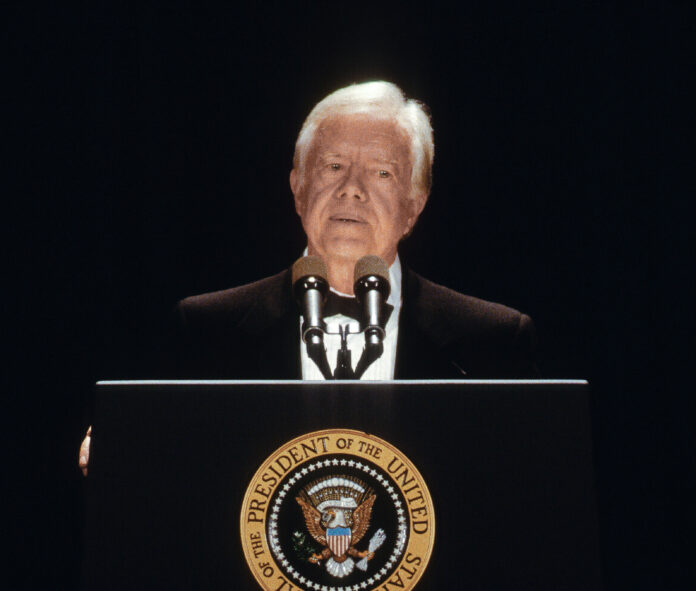Former U.S. President Jimmy Carter, who has died aged 100, was one of Israel’s greatest protectors having helped end the state of war between Egypt and Tel Aviv in 1979.
This agreement was a direct result of the negotiations that took place during the Camp David Accords of 1978, facilitated by then President Carter.
It was the first time an Arab nation formally recognised Israel’s right to exist.
The primary negotiators were Egyptian President Anwar Sadat, Israeli Prime Minister Menachem Begin, and U.S. President Jimmy Carter.
Carter played a pivotal role as the mediator, hosting the leaders at the Camp David presidential retreat for 13 days of intense negotiations from September 5 to September 17, 1978.
The actual peace treaty was signed at the White House on the South Lawn, with Carter witnessing the event. This treaty officially ended the state of war that had existed between Egypt and Israel since the 1948 Arab-Israeli War.
The provisions of the treaty were:
Subscribe to our newsletter and stay updated on the latest news and updates from around the Muslim world!
- Israel agreed to withdraw from the Sinai Peninsula, which it had occupied since the Six-Day War in 1967.
- Egypt agreed to normalise relations with Israel, which included diplomatic, economic, and cultural ties.
- The treaty recognized the Strait of Tiran and the Gulf of Aqaba as international waterways, ensuring free passage for Israeli vessels.
For their efforts, Sadat and Begin were awarded the 1978 Nobel Peace Prize.
The treaty has held for over four decades, despite challenges, including the assassination of Anwar Sadat in 1981 and various regional conflicts.
It has been described as a “cold peace” due to limited warmth in public sentiment between the two nations, but it has maintained a formal peace, preventing direct military confrontations.
The treaty was significant not only for the peace it brought between Egypt and Israel but also because it set a precedent for peace negotiations in the region, leading to further peace treaties between Israel and Arab nations in the future.
After leaving office, Carter’s views became more openly critical of Israeli policies, particularly concerning the occupation of Palestinian territories.
He has described the situation in the West Bank as “apartheid” in his writings and speeches, likening Israel’s treatment of Palestinians to racial segregation in South Africa.
His book “Palestine: Peace Not Apartheid” published in 2006 sparked significant debate. Critics accused him of bias against Israel, while others praised his forthrightness in addressing what he sees as human rights issues.
Carter also consistently advocated for a two-state solution where Israel and a Palestinian state live in peace. He was involved in various peace initiatives and monitoring efforts, including election monitoring in Palestine.
Carter, the 39th president of the United States and winner of the 2002 Nobel Peace Prize, died at the age of 100 at his home in Plains, Georgia, the Carter Center said.
The longest-lived American president served from January 1977 to January 1981.























